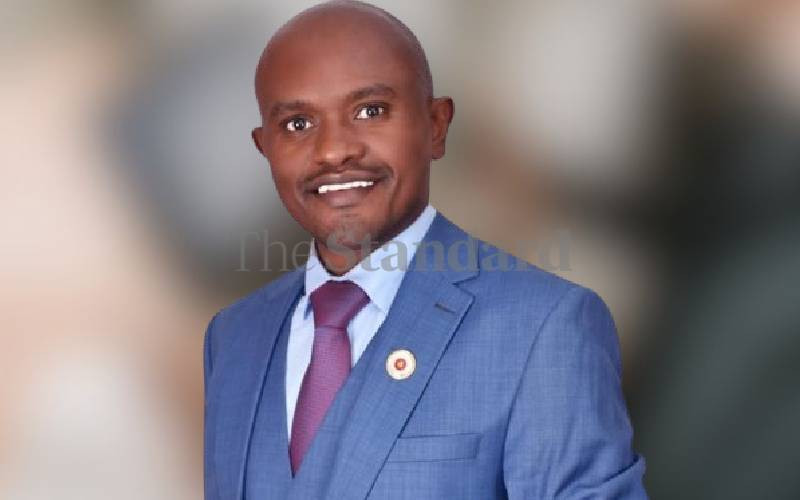As Kenya, the UK and the rest of the world confront a raft of global challenges, effective leadership will matter more than ever. But what constitutes good leadership in today’s world? Research by Cambridge University for the British Council has highlighted some of the skills next generation of leaders will need to navigate an increasingly globalised and interdependent future.
A global mind-set
Research conducted by Cambridge University’s Institute for Sustainability Leadership suggests that in today’s global context, a “global mindset” is a critical leadership attribute to cultivate, developing skills of open-mindedness, inclusivity, long-term and systemic thinking, and an ability to navigate complexity.
The research looked at perspectives on leadership from around the world with a focus on China, India, Egypt, Kenya and Mexico, offering international comparisons of how leadership and leadership development are understood across different regions and contexts. Honesty, intelligence and decisiveness emerge as the leadership traits that matter most.
In Kenya, leaders are expected to be charismatic, inspirational, visionary and team-oriented. Three-quarters of Kenyans rank integrity as the single most important characteristic of good leadership.
Many of today’s global concerns such as international security, climate change and migration are increasingly seen as too big or too intractable to be solved by national governments alone. According to much of the academic literature, the ability to collaborate across borders is considered the most important trait a leader can possess in the 21st Century.
This ‘global mind-set’ is seen by many as requiring skills and attitudes such as cosmopolitanism, a passion for diversity and inter-cultural empathy. ‘Collaboration’ has also been found to constitute one of the top three expected leadership traits across every major region, reflecting the cross-border nature of many of today’s global challenges, and the perception that national governments are ill-equipped to deal with them on their own.
However, successful global collaboration may provide its own challenges, and demand that leaders change or adapt their traditional style if they want to succeed. The Cambridge University study also highlights other interesting differences between different countries’ conceptions of leadership.
It finds that many countries today value consultative and participative leadership styles over more autocratic or ‘strong leader’ approaches. This may confound various expert pundits who comment on the predisposition of some of these countries for strong leaders.
Charismatic leadership (including the ability to inspire others based in your own values) is the most popular leadership approach around the world, but is most preferred in the English-speaking West. It is somewhat less popular in the Islamic Middle East and Confucian East Asia, which show relatively greater preference for a more team-oriented collaborative approach.
Policy entrepreneurs
According to the research, effective leadership is best exercised through policy change, often led by ‘policy entrepreneurs’: people who are able to build broad coalitions and work across jurisdictions to create public value. On the continent of Africa, leaders like Nelson Mandela and Kwame Nkrumah might fit this bill. Closer to home here in Kenya, Nobel Peace Prize Winner Wangari Maathai personified this type of leadership in her tireless efforts to build environmental awareness.
21st Century Leaders will need to demonstrate high order intercultural empathy as they collaborate with other nations to tackle shared challenges. Their leadership will, according to the Cambridge Research be exercised increasingly through policy change, often led by those able to create a shared purpose around their vision for change.
To support the next generation of leaders in Kenya to develop some of these skills, the British Council has launched Future Leaders Connect, a new global network for emerging policy leaders from 11 countries. 2,200 aspiring Kenyan future leaders applied to participate in this new programme.
Tonight, 10 Kenyan Future Leaders will compete for the five places available in the first year of this exciting new programme that aims to provide the next generation of leaders with the opportunities and understanding they need to develop their skills in leadership and policy-making within an international context. Kenya’s Future Leaders will undoubtedly make their presence felt in the UK.
Stay informed. Subscribe to our newsletter
Mr Reilly OBE, Country Director British Council Kenya
 The Standard Group Plc is a
multi-media organization with investments in media platforms spanning newspaper
print operations, television, radio broadcasting, digital and online services. The
Standard Group is recognized as a leading multi-media house in Kenya with a key
influence in matters of national and international interest.
The Standard Group Plc is a
multi-media organization with investments in media platforms spanning newspaper
print operations, television, radio broadcasting, digital and online services. The
Standard Group is recognized as a leading multi-media house in Kenya with a key
influence in matters of national and international interest.
 The Standard Group Plc is a
multi-media organization with investments in media platforms spanning newspaper
print operations, television, radio broadcasting, digital and online services. The
Standard Group is recognized as a leading multi-media house in Kenya with a key
influence in matters of national and international interest.
The Standard Group Plc is a
multi-media organization with investments in media platforms spanning newspaper
print operations, television, radio broadcasting, digital and online services. The
Standard Group is recognized as a leading multi-media house in Kenya with a key
influence in matters of national and international interest.








